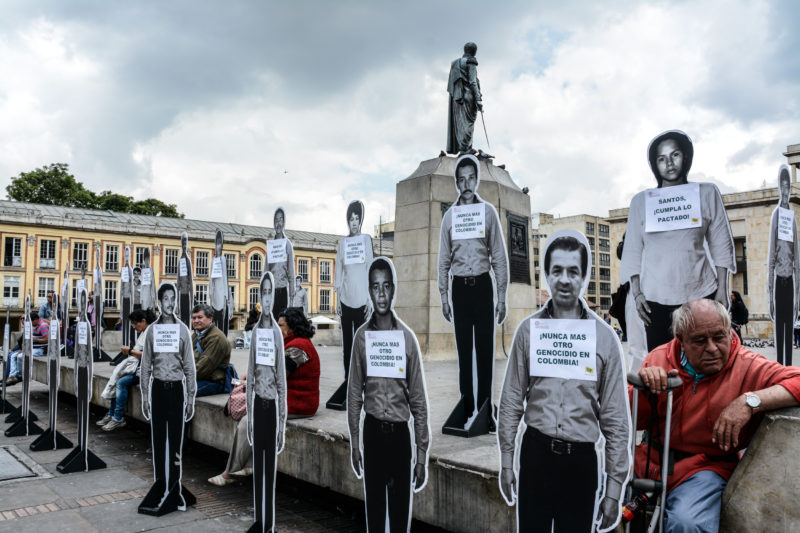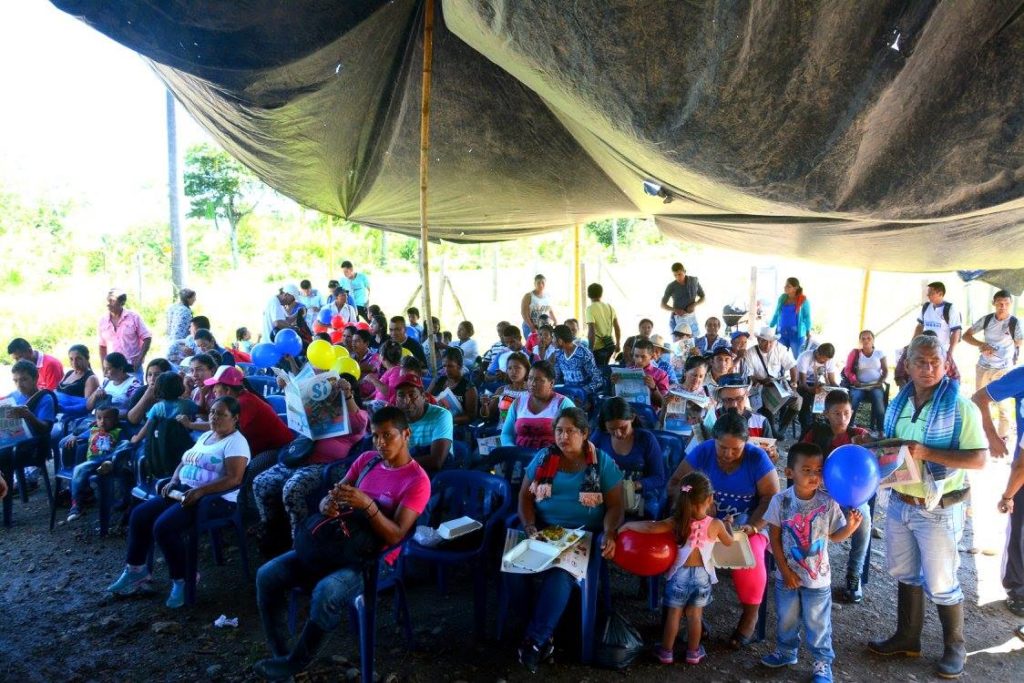Colombia: “The violent ones will not block the path of peoples whose destiny is peace”

La Via Campesina Communique, May 2020
La Vía Campesina shares with the world the concern about the blood bath that is taking place as a result of the remains of violence that persist in Colombia. The aggravation of human rights violations in the first months of 2020 is reflected in the 2,421 victims of violence in February-April. This figure has increased at the end of May and is still hard to determine.
In this critical context, Via Campesina shares a bulletin titled Ceasefire!, an effort that reaffirms its commitment with peace in Colombia and aims to provide an update on the situation as well as the critical obstacles that the process of Peace Agreement implementation is facing. This bulletin is the first of a series of regular reports focused on explaining the human rights situation and building peace in Colombia. Regarding the considerations exposed in the first bulletin, we want to highlight some concerns regarding the implementation process status.

For example, advances in land access issues do not promote broader ownership of land and the democratization of rural property. The Agreement established that 7 million hectares must be formalized through title registration in ten years, but, until January of 2020, only 95.665 hectares have been formalized, representing 1,7% of the total. Also, the Land Fund disposes of only 1,000,404 hectares, representing only 30% of the total lands available to the Fund. It is also necessary to highlight that the first hectare of land has not yet been allocated.
It is alarming to see what looks like a policy of simulating accomplishments of the Agreement. For instance, the current government exhibits numbers about the advance of land titling as if it were the fulfillment of land allocation – two different processes altogether.
The implementation process is taking place with severe limitations to communities’ participation, as is the case in the formulation and implementation process of Territorial Approach Development Programs (TADP) and Action Plans for Regional Transformation (APRT). Rural land registry policy does not include mechanisms to assure the participation of communities in the cadastral information and its oversight. Again, this policy establishes that private entities will do registration operations despite the strategic nature of this kind of information.
The government has also implemented Strategic Zones of Comprehensive Intervention (ZEII in Spanish). This proposal is based on a militaristic model of stabilization that can affect the participatory planning dynamics that have been taking place at the regional level within the TADP framework. The ¨future zones¨ have attracted widespread criticism because it does not include any means of citizen participation and makes it possible for resources to be diverted from peace programs to security policies.
The current government has decided not to include more families to the National Comprehensive Programme for the Substitution of Crops Used for Illicit Purposes (NCPS), because since November 2018 no more voluntary substitution agreements have been concluded with the communities. It, instead, has prioritized forced eradication activities. Likewise, state non-compliance with financial aid and support for productive initiatives is persistent: 42.3% of the linked families are not receiving the supports.
Duque’s government has not presented the first of many laws to implement the Agreement, even though only 11 of the 41 legal instruments required for the development of Integral Rural Reform (RRI) have been issued. Thus, for example, of the 16 national plans for the RRI contemplated in the Agreement, only five have been approved. These are plans adopted to de date:
- National Plan to Foment the Rural Solidarity and Cooperative Economy
- National Rural Social Housing Construction and Improvement Plan
- National Road Plan for Regional Integration
- National Rural Connectivity Plan
- National Rural Electrification Plan
La Vía Campesina joins other civil society sectors at the national and international levels to demand the government to implement the Peace Agreement fully. And as a priority, adopt necessary measures to stop the violence against the communities and the vile murder of ex-combatants and social leaders. We raise our voice for a ceasefire, with the certainty that no bullet can stop the Colombian people in their search for peace – an achievement that will be a victory for the entire world.
Download the Ceasefire! Bulletin,
